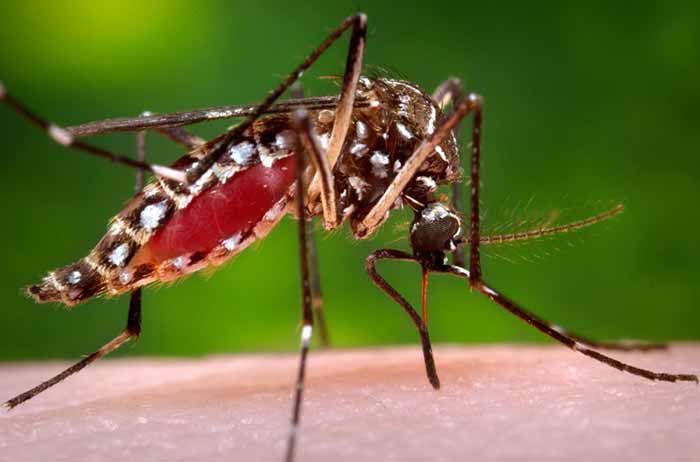Learn how to prevent Dengue, Chikungunya and Zika during the rainy season.
Currently, Bonaire is in its rainy season. Of course, while some areas may get rain, others may not. It all depends on the weather and the localized showers. When Bonaire does get rain during this time of year, the chances of Dengue, Chikungunya, and Zika increase. The Department of Public Health Public Body Bonaire asks all residents or anyone staying in a vacation home to take measures to prevent the spread of these diseases.
Dengue, chikungunya and Zika are transmitted by one species of mosquito, the Aedes aegypti, also called the dengue mosquito. This mosquito mainly lives in houses and gardens. The female mosquito stings people to suck the blood she needs to nourish the eggs in her body. Then, she looks for objects with water in them to lay her eggs. The dengue mosquito has a strong preference for artificial objects with smooth walls and clear water.
What can you do?
The most effective way to prevent dengue, chikungunya and Zika is to avoid them by removing places where mosquitoes can breed. The mosquito lays its eggs in standing water, such as in plastic containers, car tires, bottles, cans and buckets where rainwater may collect. The Public Health Department calls on everyone to:
- regularly check and empty all objects that may contain water in and around the house.
- Do you have containers or barrels to collect rainwater for plants or animals? Then, close it properly against mosquitoes. This can be done, for example, with a cloth or a mosquito net with an elastic band that is stretched around the opening.
In addition to preventing breeding grounds, it is important that you avoid being pricked by the dengue mosquito. Wear clothing that covers you during the rainy season, a strong mosquito repellent (such as DEET), and keep your house free of mosquitoes by using screens and possibly by spraying indoors if needed.
The mosquito that causes these diseases is active during the day, especially in the early morning and late afternoon. Mosquito nets may also be of use when sleeping.
Need advice?
Do you need advice or help in treating cisterns or barrels? Contact the Department of Public Health at 715-5324.
(Source: OLB)












